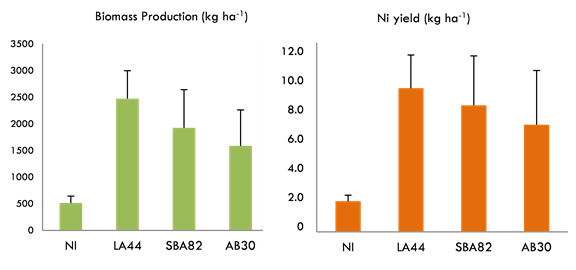
Tania Pardo
IIAG-CSIC, Spain
Title: Assessment of the use of bacterial inoculants for improving the agromining potential of Ni-hyperaccumulating plant species at field-scale
Biography
Biography: Tania Pardo
Abstract
The synergistic activity between plants and microorganisms may contribute to the implementation of soil management strategies in natural metal-enriched soils. Inoculation of plants with plant growth-promoting bacteria (PGPB) can induce beneficial effects on plant growth, health and resistance to stress, as well as increasing nutrient availability and changing metal solubility in soil. The present study aimed to assess the potential use of PGPB for improving the establishment and yield of the Ni-hyperaccumulating Mediterranean species Alyssum murale for agromining purposes at field scale. Experimental plots of 4 m2 were established in an ultramafic outcrop of Santiso (NW Spain) and seedlings of previously inoculated two-month-old A. murale were transplanted (4 plants m-2) in three replicate plots. The inoculation treatments included: (i) non-inoculated plants (NI); (ii) Arthrobacter sp. strain LA44; (iii) Arthrobacter sp. strain SBA82; and (iv) Variovorax paradoxus strain AB30 all originally isolated from rhizosphere of Ni hyperaccumulating plant species). After four months, soil pH and extractable-Ni concentrations were not modified by plants, but inoculated plants (especially LA44 and SBA82 strains) increased the soil CEC and water-soluble organic C content. The composition of soil bacterial communities of LA44- and SBA82-soils was like that of untreated soils, but the structure of AB30-soils was different to other soils. LA44 and SBA82 strains increased plant coverage and reduced the levels of some antioxidant enzymes activities compared to NI-plants (CAT and SOD). LA44 strain also enhanced aerial-biomass production of A. murale, obtaining a productivity 5-fold higher than NI-plants. All plants had similar Ni concentrations in their shoots (3.7-4.1 g kg-1), however the phytoextracted Ni per plant and Ni yield was significantly increased by LA44 and SBA82 strains. Therefore, the inoculation of A. murale with LA44 and SBA82 strains improved the agromining success without modifying the structure of soil bacterial communities, and shows the potential of PGPBs in agromining systems.


